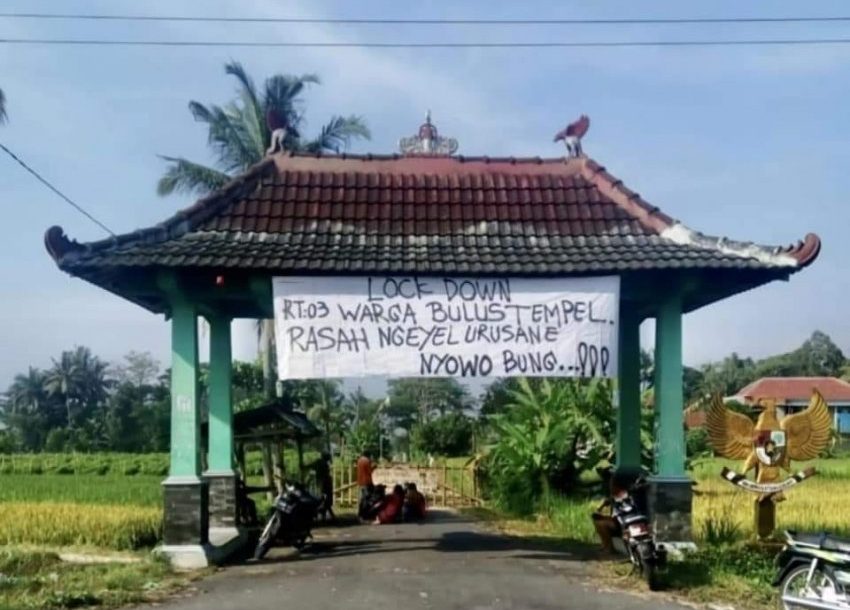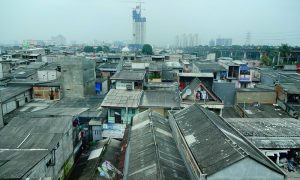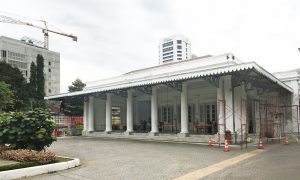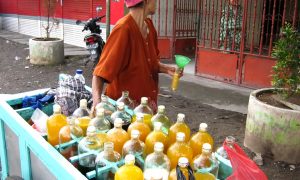There has been a fair bit of media predicting a nationwide COVID-19 crisis in Indonesia and while my family and I “stay at home” in Salatiga, a small town in Central Java, and our view is somewhat skewed to what we know happening in our area, here is what we know.
In our town we have daily updates from the city government regarding people who have positive diagnoses of COVID-19 (positive); people who are in hospital with medium to severe symptoms and suspected of being positive but test results have not yet been confirmed (PDP); people being monitored in self-isolation with mild to medium suspected COVID-19 symptoms and with a record of travel from a region with infections (overseas or anywhere in Indonesia) and waiting on test results (ODP); and people without symptoms (OTG) who are in self-isolation who have had close contact with someone testing positive for the virus and waiting on test results.
I can’t stress strongly enough how limited Indonesia’s capacity has been for testing. Indonesia (as with many other countries) has not had the infrastructure for even small-scale testing and is now struggling to establish the necessary infrastructure for mass PCR (polymerase chain reaction) testing. On 26 March the provincial government in Central Java (with a population of more than 32 million people) announced that they had finally achieved the establishment of a lab dedicated to testing for Central Java specifically, having previously relied on Yogyakarta or Jakarta labs for tests. This lab would have the capacity to conduct 40 to 60 samples per day for the whole of Central Java. In late March, 8000 odd rapid test kits were sent to Central Java by the national government at the end of last week as part of the national distribution of rapid tests kits (at a national level they only had 100,000 test kits to start with). At that time, 8000 tests were not enough to cover medical staff and people in the monitoring system (both ODP and PDP), both those in hospital and those in community self-isolation.
By mid-March the lack of reagent and even tubes for collecting and storing samples had become a significant problem for the limited number of labs that could conduct tests, as some countries had beaten Indonesia and other countries such as the USA to much of the global supply. In addition there are limited lab facilities available in each province, limiting testing numbers to 50-100 or maximum 150 per day in Central Java.
We know from the death rate that the positive infection rate is much higher than official numbers but that doesn’t mean regional and municipal governments have not been proactive. Not being able to test widely has led Central Java, and Indonesia more generally to adopt the above system of positive COVID-19, PDP, ODP and OTG. Using these categories brings the numbers of suspected cases for Central Java alone to a total of nearly 25,000 people as of 16 April 20202 (Many of these people will not be positive but the precautions are being taken as if they were positive). On 14 April, the Indonesian government publicly announced that the current numbers for each category were 10,482 PDP cases and 139,137 ODP cases.
While this monitoring system without mass testing has its weaknesses, the coordination between local neighbourhood and village officials, city and district government as well as local community health centres and regional hospitals to track every person newly (for example returning from Jakarta) arriving in Central Java has been well managed, at least in our region. Local health services have actively promoted their support facilities and anyone feeling unwell and falling into the above categories can send a message to one of six local health care centres in our city and they will be visited to assess what the person should do, with transport organised if they need to go to hospital.
While there are many valid criticisms that can be made of the national government’s lack of preparedness and poor management of the COVID-19 pandemic, the government announced on 15 April that they are currently preparing infrastructure to implement mass PCR testing. While to date the current lab facilities have supported up to 1000 tests per day, this recently announced plan involves the expansion of the number of labs that can conduct tests to a target of 10,000 tests per day. This ambitious plan will require the training of more lab technicians, the purchase of more machines and the effective organisation of regions for testing through a rational zoning process to spread the workload of testing most effectively. The government has ordered 150,000 reagent kits to be distributed across all labs, indicating that earlier shortages of supply globally are now starting to ease. Whether this plan comes to fruition requires careful monitoring but if it does, wider testing capacity should assist in mapping the spread of the virus more effectively.
At a local level our Salatiga city council has made a significant budget available to provide food and cash to local residents who have lost income. This is coordinated through kampung and greater neighbourhood structures (Rukun Tangga and Rukun Warga), a system established by the Japanese occupying authority in the early 1940s and utilised by the Suharto dictatorship to monitor political activity of ordinary people. Today these structures have in many cases become mechanisms for organising local communities to respond to the coronavirus. Residents requiring assistance are registered with the neighbourhood head and this info is passed on to village government and then to city government to organise local allocations. Neighbourhood heads’ houses are being used as drop-off points for supplies for those families in need and to avoid large crowds gathering in one area. Some of the most densely populated urban kampung have locked themselves down and have a rostered guard that controls who can enter, and all vehicles are banned from exit or entry.
On a provincial level, a group formed by a wide range of activists, NGO workers, legal aid workers, unions and other social and religious groups in Central Java is organising and monitoring the social problems arising from people losing their jobs, including mass sackings, where farmers cannot get their produce to market, what rice stocks are like in different regions and so on. It monitors social and political conflicts in local areas, conflicts over land, employment, mass retrenchment and provides support and solidarity where it can to those affected. In Surabaya, the capital of East Java, three meals a day are being delivered to every person with ODP or PDP status, organised and funded by the city government. Everyday there are new stories of local garment manufacturers making space suits for hospitals (without charge), soap, disinfectant and hand sanitiser being distributed from house to house by local neighbourhood groups, people making masks out of cloth and distributing them to small traders, online transport people, pedicab drivers and parking workers, among others. In some villages in Central Java, local residents have set up teams to prepare for people returning from Jakarta and West Java (mudik), including separate accommodation for self-isolation, food and other necessary supplies within the village—pro-active steps anticipating one of the big concerns for virus spread referred to in media reports.
Universal coverage without universal testing: Thailand’s delays in access to testing may be costly
Social distancing and travel bans won’t save Thailand from COVID-19 writes Anthony C. Kuster.
Returning home might be the only way they can survive this crisis. The preparation by many rural communities to receive people returning to their home villages is a positive sign of social solidarity and we can only hope their families and loved ones are able to adequately prepare themselves with the support of local health infrastructures.
On a final note, while commentators from afar highlight the slow and weak response by the Central Indonesian government, this is in stark contrast to the expectations of many Indonesian people. Their lack of expectations, let alone reliance on, central government to provide effective strategies to respond to the COVID-19 crisis is not surprising. Indonesia has several ongoing chronic and acute health crises: for example, where tuberculosis and dengue fever are endemic. Mitigation and eradication of these diseases are achievable goals, as tuberculosis is curable and dengue can be significantly reduced through public health campaigns. Yet 67,000 people die of tuberculosis every year in Indonesia. For many Indonesian citizens, their expectations of elected officials extend only as far as village, municipal or district government while for many, they have no expectations that even local government will act in their interests. Rather, they rely on self-organised local groups to provide moral, physical and sometimes financial support. There are many unknown variables as the COVID-19 crisis unfolds but we can be sure that social solidarity at local and regional levels have and will continue to play a big part in the ability of communities to keep themselves healthy and secure.
 Facebook
Facebook  Twitter
Twitter  Soundcloud
Soundcloud  Youtube
Youtube  Rss
Rss 



